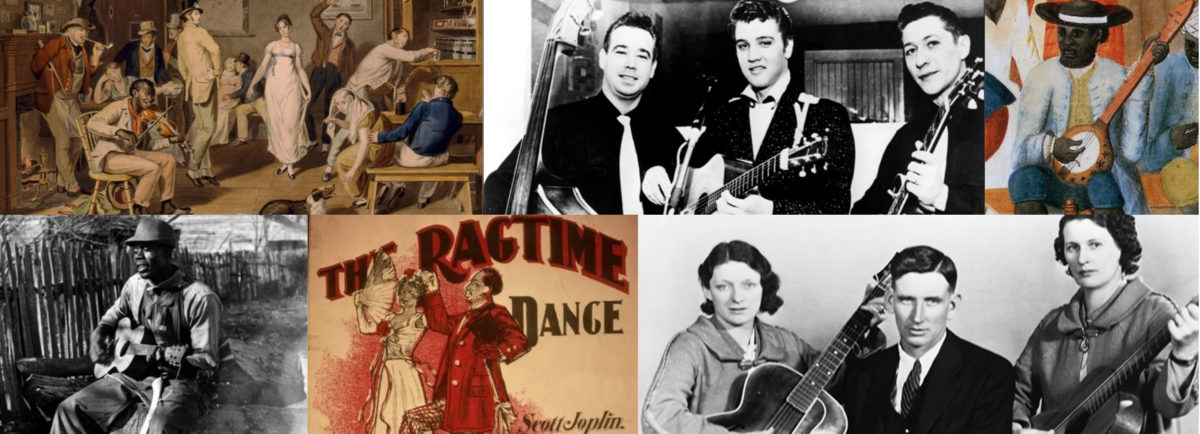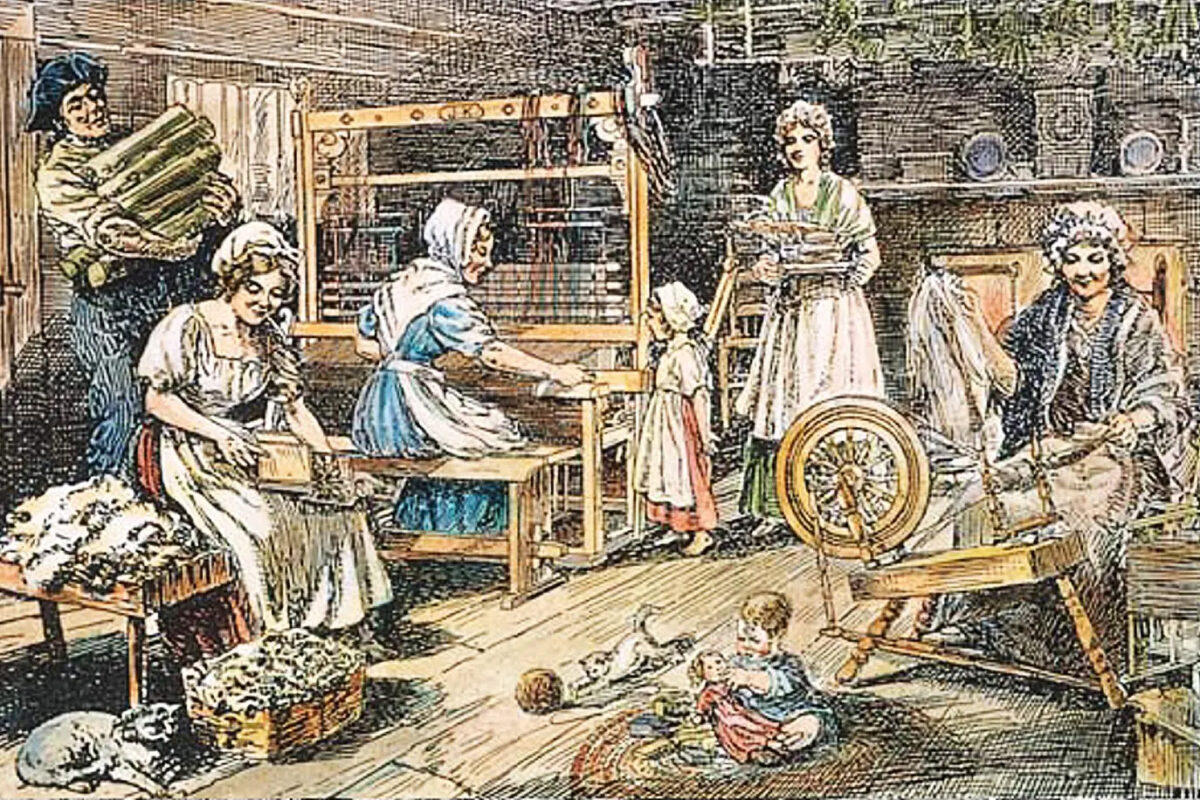Overview
“Young Ladies in Town” is an American folk song also known as “To the Ladies” and “To Our Ladies.” It was first published in a Boston newspaper in 1769. The song encourages women in the colonies to make their own clothing to support a boycott of goods imported from Britain.
Historical Background
Following the Seven Years’ War (1754-1763), the British government strayed from the previous policy of only loosely enforcing trade laws and regulations in its North American colonies. They sought to raise revenue from colonists to pay debts incurred by the war (see Brave Wolfe: About the Song). Colonists believed that Parliament had no authority to impose taxes on them because colonists had no vote in electing members of Parliament. Colonists responded to the Sugar Act of 1764 and the Stamp Act of 1765 with protests and boycotts. Though Parliament repealed these measures, they issued the Declaratory Act, which asserted their right to make laws "to bind the colonies and people of America… in all cases whatsoever." (see American Taxation: About the Song).
In 1767, Parliament passed the Townshend Acts, a series of new revenue laws proposed by Charles Townshend, the leading government minister. These duties placed indirect taxes on products imported from Britain, including glass, lead, paint, paper, and tea. The Townshend Acts further enraged colonists, who responded with well-organized resistance. The Sons of Liberty, a political organization founded to undermine British rule in colonial British North America, organized a boycott of British goods until the Townshend duties were repealed. Boston merchants persuaded traders in New York, Philadelphia, and other port cities to participate in the boycott.
The Daughters of Liberty, an organization of colonial women, held public displays of spinning and weaving to make cloth and clothing to support the boycott. A contemporary account reprinted in Frank Moore’s Songs and Ballads of the American Revolution (1856) describes one such spinning bee at the house of “a distinguished minister, in Boston, where they amused themselves with spinning two hundred and thirty-two skeins of yarn, some very fine, which were given to the worthy pastor, several of the party being members of his congregation. The party was concluded with many agreeable tunes, anthems and liberty songs, with great judgment; fine voices performing, which were animated, in all their several parts, by a number of the Sons of Liberty.”
As a result of the boycott, imports from England declined by approximately 38% in 1769. On March 5, 1770, escalating tensions between colonists and British customs agents and soldiers led to the death of five Bostonians when British soldiers fired on a threatening mob. On the same day as the so-called Boston Massacre, Parliament voted to withdraw most of the Townshend duties, but they left in place the tax on tea.
Song History
According to Songs and Ballads of the American Revolution, The Boston News-Letter, the first continuously published newspaper in Massachusetts, published “Young Ladies in Town” in 1769. This is somewhat surprising, and perhaps questionable, as the British government heavily subsidized the periodical. The Royal governor approved the content before publication, and by 1768 it functioned largely as a Tory newspaper that supported Loyalist views.
Lyrics
Lyrics adapted from Songs and Ballads of the American Revolution by Frank Moore.
Young ladies in town, and those that live 'round
Wear none but your own country linen
Of economy boast, let your pride be the most
To show clothes of your own make and spinning
What if homespun they say, be not quite so gay
As brocades, be not in a passion
For once it is known, ‘tis much worn in town
One and all will cry out, "‘tis the fashion!"
And, as one, all agree, that you’ll not married be
To such as will wear London factory
But at first sight refuse, tell ‘em such you will choose
As encourage our own manufactory
No more ribbons wear, nor in rich silks appear
Love your country much better than fine things
Begin without passion, ‘twill soon be the fashion
To grace your smooth locks with a twine string
These do without fear, and to all you’ll appear
Fair, charming, true, lovely and clever
Though the times remain darkish, young men may be sparkish
And love you much stronger than ever
Then make yourselves easy, for no one will tease ye
Nor tax you, if chancing to sneer
At the sense-ridden tools, who think us all fools
But they’ll find the reverse far and near
Sing It Yourself Videos and Recordings
Download or stream recordings from Bandcamp:
Lead Sheet
Download and print lead sheets that include lyrics, chords, and melody.
Playlists
Apple Music
Spotify
YouTube
Further Reading
Britannica Online. “Townshend Acts.” https://www.britannica.com/event/Townshend-Acts.
Library of Congress, Washington, D.C. “British Reforms and Colonial Resistance, 1767-1772.” https://www.loc.gov/classroom-materials/united-states-history-primary-source-timeline/american-revolution-1763-1783/british-reforms-1767-1772/
Moore, Frank. Songs and Ballads of the American Revolution: With Notes and Illustrations. Kessinger Publishing, 2010. Originally published 1856.
Silber, Irwin. Songs of Independence. Stackpole Books, 1973.
Thomas, Peter D. G. The Townshend Duties Crisis: The Second Phase of the American Revolution 1767-1773. First edition. Oxford Oxfordshire : New York: Oxford University Press, 1987.


